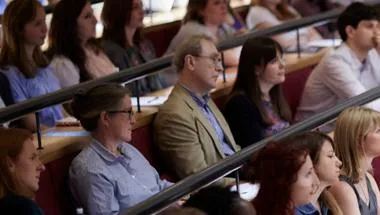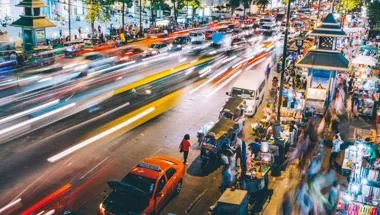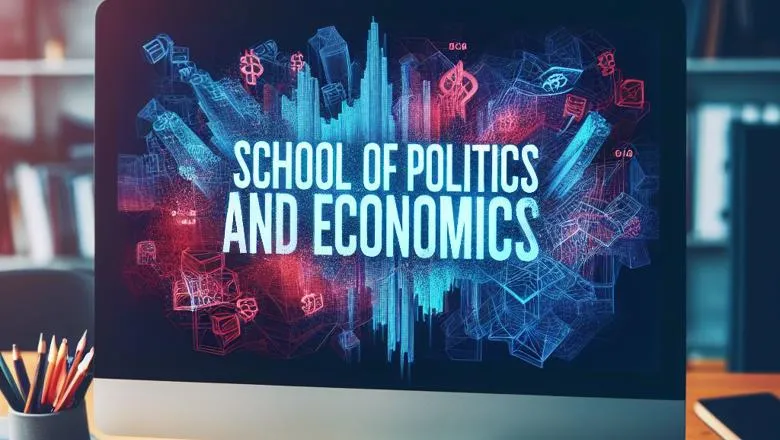
Biography
Dr Daniel H. Alves is an early-career political economist with teaching and research appointments at King's College London and the London School of Economics and Political Science. At King's, he convenes the module Comparative Social Policy at the Department of Political Economy and leads seminars, as a Graduate Teaching Assistant, in the module Research Methods in War Studies and International Relations at the Department of War Studies. He is also an undergraduate and postgraduate dissertation supervisor at the Department of Political Economy, a Guest Lecturer and Affiliate at King's Brazil Institute, and a Researcher in Public Policy at the Policy Institute. At the LSE International Inequalities Institute, Dr Alves is the Project Coordinator of the Latin America and Caribbean Inequality Review (LACIR).
His research has contributed to interdisciplinary debates in the fields of comparative and international political economy and the politics of development and public policy, particularly with respect to the questions of what political variables shape economic inequality outcomes, how equity-enhancing reforms emerge, and why some social policies succeed in being enacted while others fail. Additionally, Dr Alves currently collaborates with other researchers on projects examining the distributional conflicts that affect democratic stability and consolidation, as well as economic growth strategies, in both the Global South and the rich world. His research has been published in the internationally recognised peer-reviewed journals Politics, Politics & Policy, and Latin American Research Review, and he has also written commentaries and shorter pieces, including for the LSE Inequalities Blog and the King's Brazil Institute Blog.
Dr Alves received a PhD in Political Economy from King's College London in February 2025. He is an Associate Fellow of the Higher Education Academy, and students have nominated him for the King’s Education Award 2025 and 2022 and the King's School of Politics and Economics GTA Award 2023.
Research Interests
- Comparative political economy
- International political economy
- Politics of development
Publications
Alves, Daniel H. 2025. What Explains Equity-Enhancing Reforms Under Centre-Right Governments? Evidence From Brazil. Politics. https://doi.org/10.1177/02633957241310577
Alves, Daniel H. 2024. Elections, Coalitions, and the Politics of Brazil’s Macroeconomic Stabilization. Politics & Policy 52 (6): 1227-1245. https://doi.org/10.1111/polp.12637
Alves, Daniel H. 2024. Partisanship, Cross-Party Coalitions, and Social Policymaking in Brazil. Latin American Research Review 58 (3): 570-587. https://doi.org/10.1017/lar.2024.33
Research

Public Policy and Regulation Research Group
Public Policy and Regulation (PPR) is the home for theoretically and empirically grounded research which analyses policy and regulatory responses to important political, social and economic issues, and (individual-level) responses to these policies.

Comparative Politics Research Group
The Comparative Politics research group hosts a research agenda based on political institutions, representation and regimes.

Global South Research Group
The Global South research group brings together scholars engaged in research on international political and economic trends, non-European perspectives, and south-south comparisons.
News
King's alum reflects on 'joy, relief and gratitude' after passing PhD
To mark the completion of his PhD, we caught up with alum Daniel Alves to hear more about the inspiration behind his research, get an overview of the findings...

Events

Brazilian Inequalities: Identifying Challenges, Seizing Opportunities
Join our brilliant panellists and engage with the discussion by asking your questions
Please note: this event has passed.

Regional identification or economic calculation: preferences of Brazilian voters about federalism
Professor Marta Arretche presents findings demonstrating political crisis did not affect attitudes regarding centralisation in Brazil, and voter preferences...
Please note: this event has passed.

State and market after COVID-19
After decades of an economic consensus about the centrality of the Market in promoting well-being, in today’s political arena opposing groups represent...
Please note: this event has passed.

Book Discussion - Decadent Developmentalism: The Political Economy of Democratic Brazil by Matthew Taylor
A panel organised by the King’s Brazil Institute and the Department of Political Economy to discuss Dr Matthew Taylor’s new book Decadent Developmentalism:...
Please note: this event has passed.
Features
Navigating sustainable development: highlights from Brazil Week 2024
In four days of panels, lectures and workshop, we encouraged debates on climate change, public health emergencies, green transition and more.
Research

Public Policy and Regulation Research Group
Public Policy and Regulation (PPR) is the home for theoretically and empirically grounded research which analyses policy and regulatory responses to important political, social and economic issues, and (individual-level) responses to these policies.

Comparative Politics Research Group
The Comparative Politics research group hosts a research agenda based on political institutions, representation and regimes.

Global South Research Group
The Global South research group brings together scholars engaged in research on international political and economic trends, non-European perspectives, and south-south comparisons.
News
King's alum reflects on 'joy, relief and gratitude' after passing PhD
To mark the completion of his PhD, we caught up with alum Daniel Alves to hear more about the inspiration behind his research, get an overview of the findings...

Events

Brazilian Inequalities: Identifying Challenges, Seizing Opportunities
Join our brilliant panellists and engage with the discussion by asking your questions
Please note: this event has passed.

Regional identification or economic calculation: preferences of Brazilian voters about federalism
Professor Marta Arretche presents findings demonstrating political crisis did not affect attitudes regarding centralisation in Brazil, and voter preferences...
Please note: this event has passed.

State and market after COVID-19
After decades of an economic consensus about the centrality of the Market in promoting well-being, in today’s political arena opposing groups represent...
Please note: this event has passed.

Book Discussion - Decadent Developmentalism: The Political Economy of Democratic Brazil by Matthew Taylor
A panel organised by the King’s Brazil Institute and the Department of Political Economy to discuss Dr Matthew Taylor’s new book Decadent Developmentalism:...
Please note: this event has passed.
Features
Navigating sustainable development: highlights from Brazil Week 2024
In four days of panels, lectures and workshop, we encouraged debates on climate change, public health emergencies, green transition and more.
